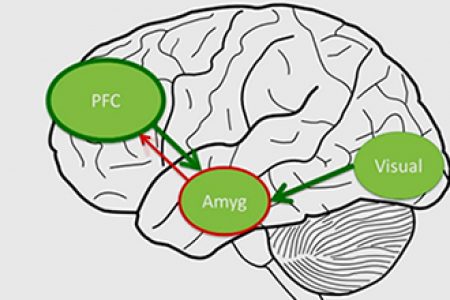Within five minutes, Nico Frijda is there…
Nico Frijda, professor emeritus University of Amsterdam, passed away on April 11, just before his 87th birthday. His legacy is enormous. His book The Emotions (1986) radically changed perspectives on emotions. The amazing thing, it is still doing so today!
Nico Frijda contradicts the most common everyday notions about emotions
The ideas on emotions first formulated by Nico Frijda, and subsequently adopted by academics and researchers in the field of emotion theory, contradict the most common everyday notions about emotions that have proved so persistent.
Are emotions rational?
For years now I have been teaching high-school students who are ahead of their school program and can take a course at the Leiden University Honours Academy to supplement their curriculum. My seminars with them are on what I know best: emotions. And then there are students doing their bachelor’s or master’s in Psychology – here too I teach about my area of expertise: emotions. And all these students start their course on emotions with the same sense of disbelief: Are emotions instrumental in our social relationships? Do we ‘choose’ our emotions as a strategy? Are emotions rational? No way, it cannot be!
Within five minutes of every lecture, Nico Frijda is there…
It is then up to me to convince these novices, these uninitiated students, of the ideas and theories developed by Nico – and with him his peers and team of researchers and student assistants, like my PhD supervisor Prof. Mark Meerum Terwogt. As a result, within five minutes of every lecture I give on emotions, whether at home or abroad, I find myself talking about Nico Frijda.
Just to hear Nico Frijda speak
I first came across Nico in person when I took his classes as part of my psychology degree at the University of Amsterdam. Nico was a gifted speaker. A fellow student told me, for example, that he sometimes invited friends who weren’t even studying psychology to attend the lectures, just to hear Nico Frijda speak. During seminars Nico was unfailingly patient and never tired of explaining the basic principles of emotion theory as he saw it. It was also a lot of fun to debate with him, although this was a lost cause: you could never win. The arguments Nico used and the examples he gave to make his point – I still use them in my lectures today.
The emotion process: a cat that sees a mouse
One such example is Nico’s analogy to describe the emotion process: a cat that sees a mouse. When a cat sees a mouse it is immediately on the alert, its whole body tense, ready to pounce. But the cat doesn’t just run after the mouse. Quite the contrary: the cat freezes, controlling its initial impulse. The cat will first consider all its options – calculating the distance, the speed it needs, how to crawl up as close as it can unseen – before it takes any action. Only after careful planning will the cat enact what it believes is the most promising strategy to fulfill its desire to eat that mouse.
‘Latency time’
Similarly, in an emotion-evoking event – think of an unexpected conflict situation with your line manager, for example – we are first aroused, our whole system is ready to react… but we don’t. We have this so-called ‘latency time’, in which we control ourselves and carefully consider all possible options, strategies, and limitations, calculating which strategy will give us the most promising happy (i.e. desired) ending. Unlike the cat who has only one happy ending, we of course have many different possible outcomes to consider, all of which might have different degrees of desirability; this complicates our evaluative process.
Yes, emotions are rational!
So besides being a great speaker, Nico had an important message to tell: Yes, emotions are rational! The motives underlying emotions may be irrational, but the emotions themselves reflect an evaluative process aimed at obtaining the optimal outcome given all the various parameters involved.
Web lectures to update people’s assumptions about emotions
In fact, I am puzzled about why this theory on the rationality of emotions still conflicts with most people’s everyday psychological ideas, which seem to stubbornly hold on to some kind of emotional irrationality, or emotional weakness. Although Nico’s legacy is enormous, there is obviously a lot of work still to do. The current trend of web lectures that can be watched online may finally pave the way to updating people’s assumptions about emotions; and if you ever watch one of mine, Nico’s name is sure to be mentioned within the very first five minutes.
Not until Nico agreed with my ideas on emotion socialization
In 2010 I gave my inaugural lecture at Leiden University on taking up my chair on emotional development in children with communicative impairments - but not until Nico had read the full text and told me he agreed with my arguments on the process of emotion socialization. Sadly, I can no longer ask Nico if he agrees with my perspective in this blog. But since he fully agreed with me then, I can only trust that my reflections here about his ideas and his legacy would also have his agreement.





